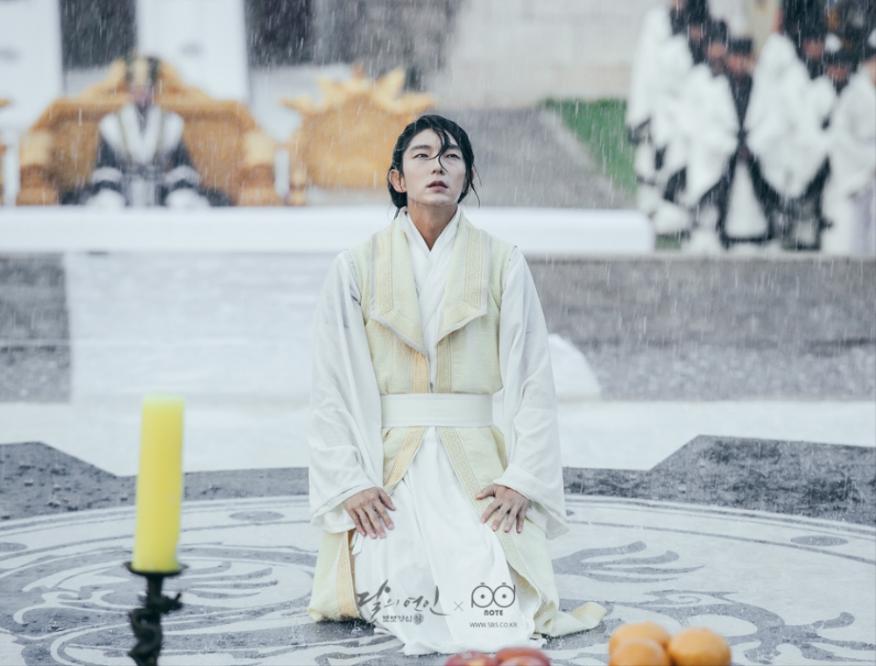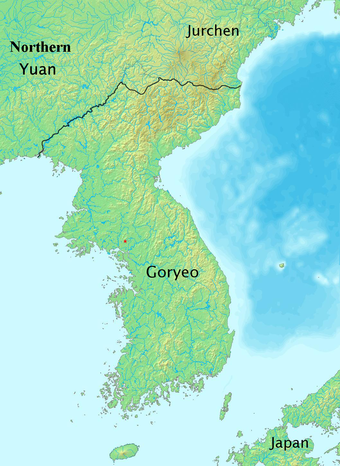“All things are subject to interpretation. Whichever interpretation prevails at a given time is a function of power and not truth.”
— Friedrich Wilhelm Nietzsche

Background
Amidst a long bout of procrastination last year, I found myself engrossed in a historical K-drama titled Moon Lovers: Scarlet Heart Ryeo. Set in the historical Kingdom of Goryeo (CE 918 – 1392), the story follows a contemporary woman who gets transported back in time to the kingdom’s early days. Possessing foreknowledge of events to come, she struggles to avoid influencing history, though finds herself (literally) drowning in the royal palace, ultimately becoming entangled in the struggle for the throne. Oh, Goryeo is located in the Korean Peninsula by the way.

Context
Impressed upon my mind is a pivotal scene occurring in the context of a kingdom-wide drought. Although now vanished from the toolboxes of modern states (i would hope), the royal court of Goryeo exhorted the King to perform a rain-calling ritual, i.e to put on an overt play of getting on his knees in front of a big crowd in an ostentatiously grand ceremony, and using the pull of his position as a “divine emissary” to bring salvation upon his people. Wordy? I know. Run on? Who cares.
Severely ill in this part of the show, the king could not take the helm of the ceremony, and thus the task was to be delegated to one of the many Princes who were insidiously vying for the throne. It was implied that whoever got hold of the opportunity and successfully “delivered” rain would gain a lucrative leg up in the race for the Throne – becoming as heavily marketable as a modern sports superstar.
Questioner: But Yahya, what does any of this have to do with power influencing truth?
Yahya: I’m glad you ask!
Questioner: And? Just answer the bloody question.
Yahya: Alright, a question for the questioner: What happens if you, as the Prince, perform the ceremony and it fails to rain?
Questioner: …
You keep doing it.
The Lesson
Now, the real question is why people would ever associate rainfall with an individual. Sure, the water cycle was not yet being beaten into the heads of tender 4th graders at this point in history, but such an answer does not suffice for our purposes; after all, we wish to establish the link between power and truth. Without the ceremony, rain would almost certainly still have fallen, yet the masses appear ignorant, or worse, simply disregard this. Why?
The genius and deviousness of the rainfall ceremony lie in its inherent simplicity. We know today that, probabilistically, rainfall is only a matter of time. Ipso facto, the uncertainty comes from determining not if it will rain, but when – it could start drizzling in the next second or the next 10 years.
In an era of widespread ignorance (ironically not much different than today, imho), an astute and enterprising individual with great ambition – like a would-be monarch – would be able to grasp the opportunity to create a popular perception beneficial to themselves. Making desperate people believe you can deliver rain is but an instance of such sophistry in the deep sands of time.
For one seeking public support to rule a kingdom, attempting to convince the masses you can do the impossible is a worthy gamble. Keeping with our current example, so long as it rains while you are in charge of the ceremony, the credit goes to you. If it rains in one day, you are hailed as the heavens incarnate. If it rains in 1 month, your agents of misinformation would proclaim the heavens were “touched by your sincerity.” The only fatal weakness is if it really takes too long for the rain to come. Au fond, you gain effusive public support while reinforcing the “legitimacy” of your claim to power – all by exploiting the ignorance and desperation of a people. Not so “Noble” after all, huh?
In the show, royal power was used to influence the publics perception of the rain’s origin, and no one could say otherwise. The “truth” was relegated to a mere instrument of securing power – an unfortunate sight far from being foreign to our own times.
What impressed me so much about this scene, I suppose, was the embedded message that making people believe you can accomplish something often matters more than actually being able to deliver. The more chilling implication, however, is that even if an individual may question this fabricated truth, they’d be powerless against a populace drunk on illusions. Why? Well, experience and history compel me to believe that popular belief has the capacity to trump individual rationality, let alone when sauteed in the oil of ignorance.
Anywho, I shall end by leaving us with this encapsulating quote from the k-drama.
“One person cannot move the heavens. You just need to make it look that way”
But, see it for yourself
If you made it this far, you may need serious help…
Cheers!

Leave a Reply